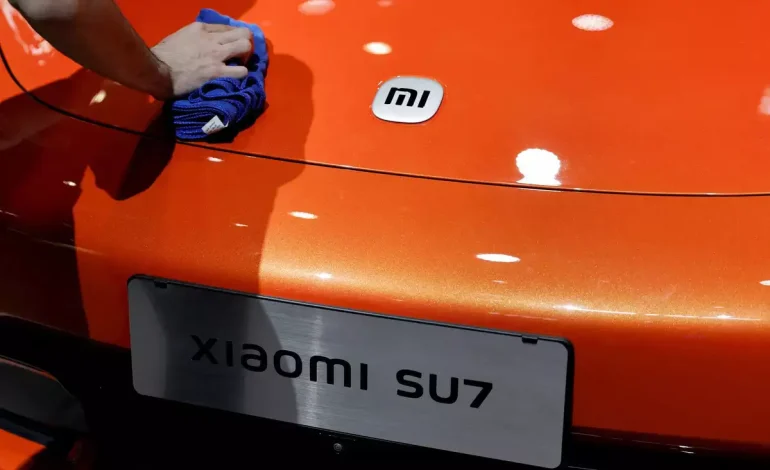Xiaomi Corp. reported record-breaking first-quarter revenue and profit on Tuesday, driven by a strategic pivot toward higher-end products and strong performance in both its core smartphone business and expanding electric vehicle (EV) operations, Reuters reports.
For the quarter ending March 31, Xiaomi posted revenue of 111.3 billion yuan ($15.48 billion), marking a 47% increase year-on-year and surpassing analysts’ expectations of 107.6 billion yuan, according to data from LSEG. The company’s adjusted net profit climbed to 10.7 billion yuan — a 65% year-on-year rise and above the forecasted 8.96 billion yuan.
Xiaomi President Lu Weibing emphasized during a conference call that the company’s ongoing strategy to focus on premium products was showing tangible results. Known primarily as the world’s third-largest smartphone manufacturer, Xiaomi has increasingly diversified into other sectors, including smart home appliances and electric vehicles.
Last week, Xiaomi introduced its latest electric SUV, the YU7, which is set to go on sale in July. Lu noted that initial feedback suggested the YU7 could appeal to a broader market compared to its predecessor, the SU7 sedan. While the company did not release official pricing for the YU7, it hinted that the SUV’s higher-end specifications could place its price 60,000–70,000 yuan above Tesla’s Model Y, which currently starts at 263,500 yuan ($36,574).
In the first quarter, Xiaomi’s EV division generated 18.1 billion yuan in revenue and delivered 75,869 SU7 vehicles. Despite this, the segment recorded a 0.5 billion yuan adjusted net loss, reflecting the high investment costs associated with new business lines.
Xiaomi’s EV sales momentum has faced recent challenges, including a fatal accident involving an SU7 operating in driving-assistance mode and consumer concerns about marketing clarity. The company issued a public apology earlier this month, acknowledging that some promotional materials may have lacked sufficient transparency.
Nonetheless, Xiaomi’s shares have rebounded since April, lifting its market capitalization to approximately $170 billion — exceeding that of BYD, China’s largest EV manufacturer, which holds a valuation around $161 billion.
In the smartphone sector, Xiaomi saw global shipments rise 3% year-on-year to 41.8 million units in Q1, maintaining its position as the third-largest smartphone vendor with a 14.1% market share, according to research from Canalys cited in the company’s earnings report.










The latest news in your social feeds
Subscribe to our social media platforms to stay tuned